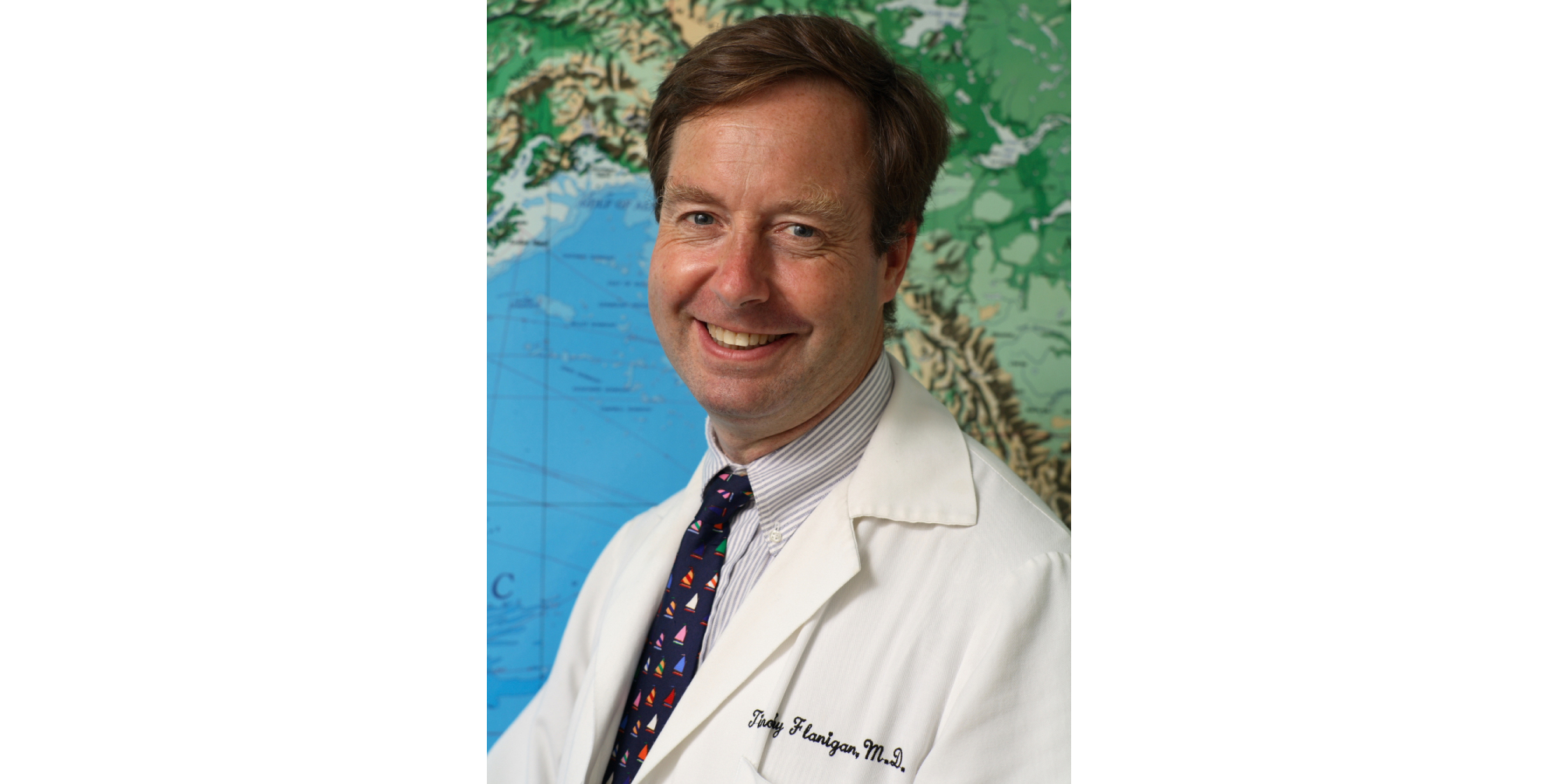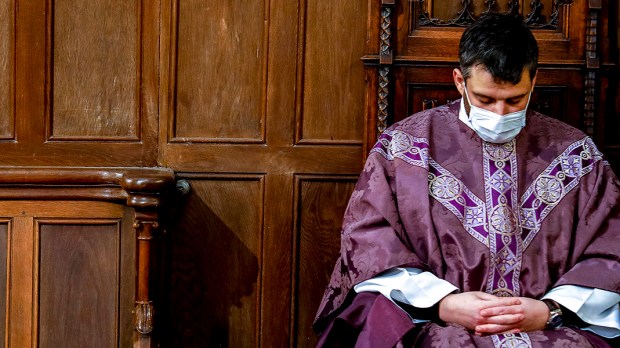The coronavirus continues to claim victims throughout the world. In the United States alone, more than 50,000 people have died due to the pandemic, and among them are included many doctors who were infected in the course of their heroic daily work fighting to save lives.
What is this daily battle against COVID-19 like, for a Catholic doctor?
Doctor Tim Flanigan is an infectious disease expert at The Miriam and Rhode Island Hospitals and a Catholic deacon of the Diocese of Providence. Here, he opens his heart to us, giving us a snapshot of his personal life, which has been turned upside-down as if by a tsunami since this healthcare emergency swept onto the scene.
What has life been like for you during these months of the healthcare emergency?
Tim Flanigan: “These last weeks have been tough. Most of my time has been spent in the hospital. Each patient that comes in breathless or short of breath grips your heart in a little way.
Looking at their medical records, I ask myself, ‘Will they recover on their own quite quickly or will they take a downhill course and require possible intubation and not make it?’”
It’s an unfamiliar and unpredictable enemy.
Tim Flanigan: “In medicine we usually know the course of the disease quite well. When the cancer is metastatic everywhere, our goal is pain control and to ease the passing of the patient.
When a patient has end-stage congestive heart failure and the heart is not working anymore then we can manage this at home and let them pass with their family with them.

With this disease, one cannot predict. Patients are wide awake and fighting for their breath, and some of them pull through despite the odds, which is very beautiful, but others of course do not.
Doctors want control and want to know the course of the illness. It gives us certainty and confidence and helps us care for the patient and the family. We do not have this when our patients come in with Covid pneumonia. Many pull through very well, with not a difficult course, over a week… Others suddenly deteriorate in the middle of the night when they were doing quite well the day before.”
What therapies are you trying out?
Tim Flanigan: “We try experimental therapies. We’re very busy with trials of Remdesivir and with plasma from patients that are recovered, and with hydroxychloroquine, and we are all coming up with new ideas that might or might not help. How beautiful this is, because it will help us move forward.
Medicine and science progress in small steps, not in leaps and bounds. New ideas are welcome because we have so few tools in our toolbox. We look to try and find the ‘penicillin’ for this pneumonia but we do not have it. I think we will develop a vaccine and this will be our effective tool.”
What’s the hardest part of your dealings with your COVID patients?
Tim Flanigan: “In the meantime we have to be present to our patients while still not exposing ourselves to too great a risk. Usually patients have families that can sit by their bedside and unhappily this has been taken away.”

Read more:
Coronavirus: What should Catholics do?
How is God present in the midst of so much suffering?
Tim Flanigan: “One of my patients who had a rocky course felt the strong presence of God and Jesus with him through it all. He was fearful and anxious but had a certainty in his heart that he would pull through. Our faith in these times is not abstract and it’s not an idea. It is a concrete reality.
Jesus is living. His mother Mary is living. Eternal life is not a metaphysical or philosophical concept. It is a true reality.
If a man is blind and hears the voice of his brother or sister does he doubt that they actually live? No he does not. He can touch them and he can hear them but he cannot see them. We have to open the ears of our heart and we have to see with our soul and we have to be aware of the real presence of Jesus who is risen and who is divine mercy being literally at our side.
For me, this is the only way forward.
Having friendship with Jesus and Mary means having to feel the pain and also open your heart to the joy. It is hard on the human heart. The first step in friendship is to ask Jesus and Mary to be your friend. Asking just this is a small step but a very very powerful one. This is the way forward”.
Are you afraid?
Tim Flanigan: “My dreams are quite harsh which tells me the anxiety wears on me more than I admit. But doctors are very tough and we do not like to admit our weakness at all to anyone! Overall I am doing well. Walking and running and eating like crazy, so it is a good time to gain weight, which is a sign of interior healing, and saying my Rosary.”

